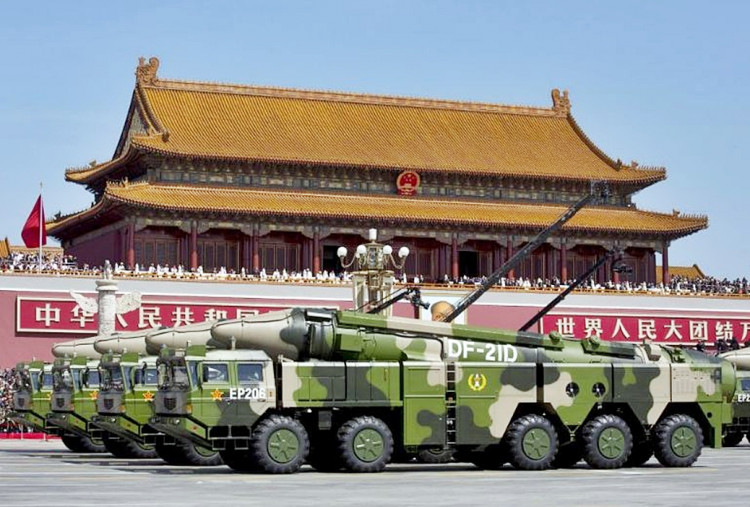The United States will withdraw from the Intermediate-Range Nuclear Forces Treaty (INF) it signed with the Soviet Union in 1987 because the treaty allows China the unimpeded development of theater ballistic missiles banned by the landmark treaty.
It also cited repeated Russian violations of this treaty that was supposed to have banned the development of an entire class of nuclear-capable missiles. President Donald Trump alleges Russia "has violated the agreement. They've been violating it for many years."
Equally important, Washington believes the INF treaty has put the U.S. at a disadvantage because China is not constrained by a similar treaty. China today does not face any legal impediments to developing intermediate-range nuclear missiles in the Pacific. On the other hand, the treaty does not allow the U.S. to develop new weapons of this class it can deploy in Asia against China.
Trump specifically pointed to China when explaining his reasoning for pulling out of the treaty He said if Russia's doing it and if China's doing it and the U.S. is adhering to the agreement, that's unacceptable.
The former commander of the United States Pacific Command (USPACOM), Admiral Harry Harris, last year told the Senate Armed Services Committee that some 95 percent of China's missile force violates the INF Treaty if China was a party to the treaty.
Adm. Harris said this fact is significant because the U.S. has no comparable capability in Asia due to its adherence to the Intermediate INF Treaty with Russia.
The treaty eliminated all nuclear and conventional missiles, and their launchers, with ranges of 500 km to 1,000 kilometers (short-range) and 1,000 km to 5,500 km (intermediate-range). The treaty did not, however, include sea-launched missiles.
The treaty eliminated 2,692 missiles by May 1991. This was followed by 10 years of on-site verification inspections. It offered a shield of protection to the United States' European.
The European Union (EU), which is directly threatened by the missiles banned by the ITF, has not issued an official response to Trump's unilateral move to pull out of the treaty. The EU and other European countries were apparently not consulted by Trump prior to his decision.
Former State Department spokesman Rear Adm. John Kirby said the treaty wasn't designed to solve all of our problems with the Soviet Union. INF, however, was designed to provide a measure of some strategic stability on the continent of Europe.
Kirby said he suspects America's European allies right now are none too happy about hearing that Trump intends to pull out of the INF.






